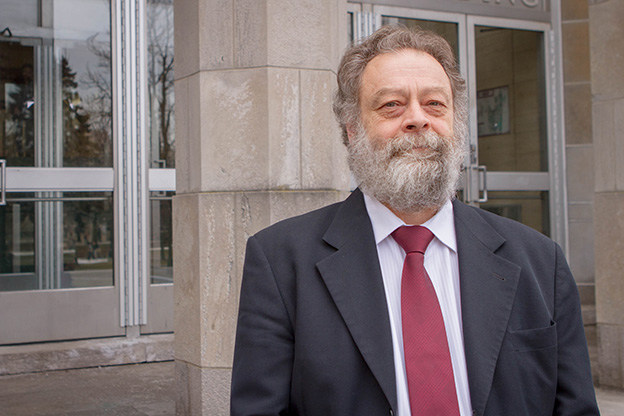Rob Baker appointed McMaster’s new Vice-President Research

The need to understand the world around us is embedded in our DNA.
“It’s just part of what we do,” says Rob Baker. “We need to understand how things work – it’s part of the human spirit. We’re driven by it.”
That drive is especially strong in McMaster’s researchers, which is exactly why Baker is looking forward to his new role as the University’s Vice-President Research.
Baker has served as Dean of Science since July 2013. His appointment to this new role was approved by the Board of Governors at Thursday’s meeting.
“The Selection Committee made an excellent recommendation following its international search,” says University President Patrick Deane. “Rob brings a wealth of experience to the position, as well as an acute understanding of what it will take to maintain McMaster’s international standing as a leading research-intensive institution.”
Starting July 1, Baker will be responsible for supporting, promoting and advancing research at McMaster. He’ll oversee a research enterprise consistently ranked among Canada’s best, with a research intensity level nearly double the national average.
“McMaster has a great reputation,” says Baker. “It’s a powerful research institution, and has a culture that facilitates and encourages interdisciplinary teamwork.”
That strength in interdisciplinary research is becoming increasingly important, Baker says, as more and more of the complex questions humans ask are better answered through collaboration.
“At McMaster, it’s simple to walk across campus and talk to a colleague in another field,” he says. “And that’s not just something we say. Researchers here do that every day.”
The Vice-President Research is also responsible for fostering the relationship between research and teaching – something Baker points out is highly developed at McMaster.
“That’s not something all universities excel at,” says Baker. “Hands-on, real research projects offer undergraduates opportunities to learn about the world of research, that’s a fundamental component of what we do here.”
A behavioural ecologist, Baker has more than 30 years of research experience of his own, much of it spent trying to better understand the evolution of animal behaviour.
His most recent work focused on the ecological significance of antipredator and antiparasite behaviour of aquatic insects and amphibians.
He has also spent many years as a university administrator: he was the first chair of biology at the University of Toronto in Mississauga, and served as associate dean of science at that campus. On UofT’s St. George campus he served as chair of the Department of Zoology, chair of Ecology and Evolutionary Biology and, in the Faculty of Arts and Science, vice-dean of Graduate Education and Research and vice-dean, Research and Infrastructure.
“We have a great foundation to build on – there are wonderful researchers here,” says Baker. “My job now will be to develop the processes and policies to ensure we get the best out of those people and help advance their research careers.”
The process to find the next Dean of Science will be shared with the community shortly.

